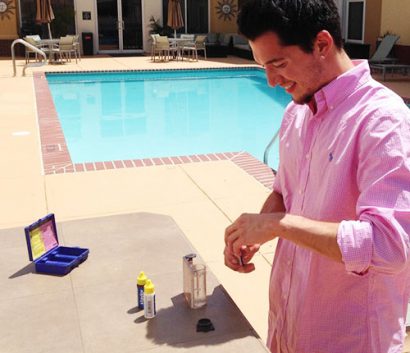National Environmental Public Health Internship Program (NEPHIP)
Health departments and students: Apply for NEPHIP, a 400-hour (~10-week) internship opportunity linking environmental health undergraduate and graduate students with health departments.
- Health departments: Apply any time to host a student
- Students: Submit an interest form

Students: Get hands-on experience and a stipend.
Health departments: Gain high-quality assistance at no cost.
NEPHIP is administered through a partnership between CDC and the National Environmental Health Association (NEHA). Student applicants must be from academic programs accredited by the National Environmental Health Science and Protection Accreditation Council.
Since 2015, NEPHIP has supported almost 200 internships for environmental health students hosted by health departments around the country. Previous NEPHIP interns worked across a range of environmental health programs. The top five areas were the following:
- Food safety and protection
- Onsite wastewater (septic systems)
- Public swimming pools
- Rabies prevention
- Private or onsite drinking water
Interns completed many different types of activities during their 10-week internship. The most common were the following:
- Performing inspections
- Educating the public
- Maintaining databases or electronic information systems
- Engaging in partnerships with the community or other stakeholders
- Responding to complaints

“It was very rewarding to put the knowledge learned in classes to real time application…
I can’t wait to see
where my future in
environmental health takes me.”
–Kyle, former NEPHIP intern
NEPHIP helps establish pipelines and increase workforce diversity by encouraging environmental health students to consider careers at local, state, or tribal environmental health departments after graduation. Program graduates have first-hand field experience and knowledge of frontline environmental health challenges. With 1 in 4 environmental health professionals in health departments planning to retire in the next 5 years, creating a path for the next generation is critical. In a survey of former NEPHIP interns, 4 out of 5 said they were more likely to pursue a career in environmental health after participating.
Apply and learn more about NEPHIP.
Read our article about past NEPHIP intern experiences.
Learn about our UNCOVER EH initiative to assess the current state and future trends in environmental health.
Learn more about the Environmental Health Science and Protection Accreditation Council and the Association of Environmental Health Academic Programs.